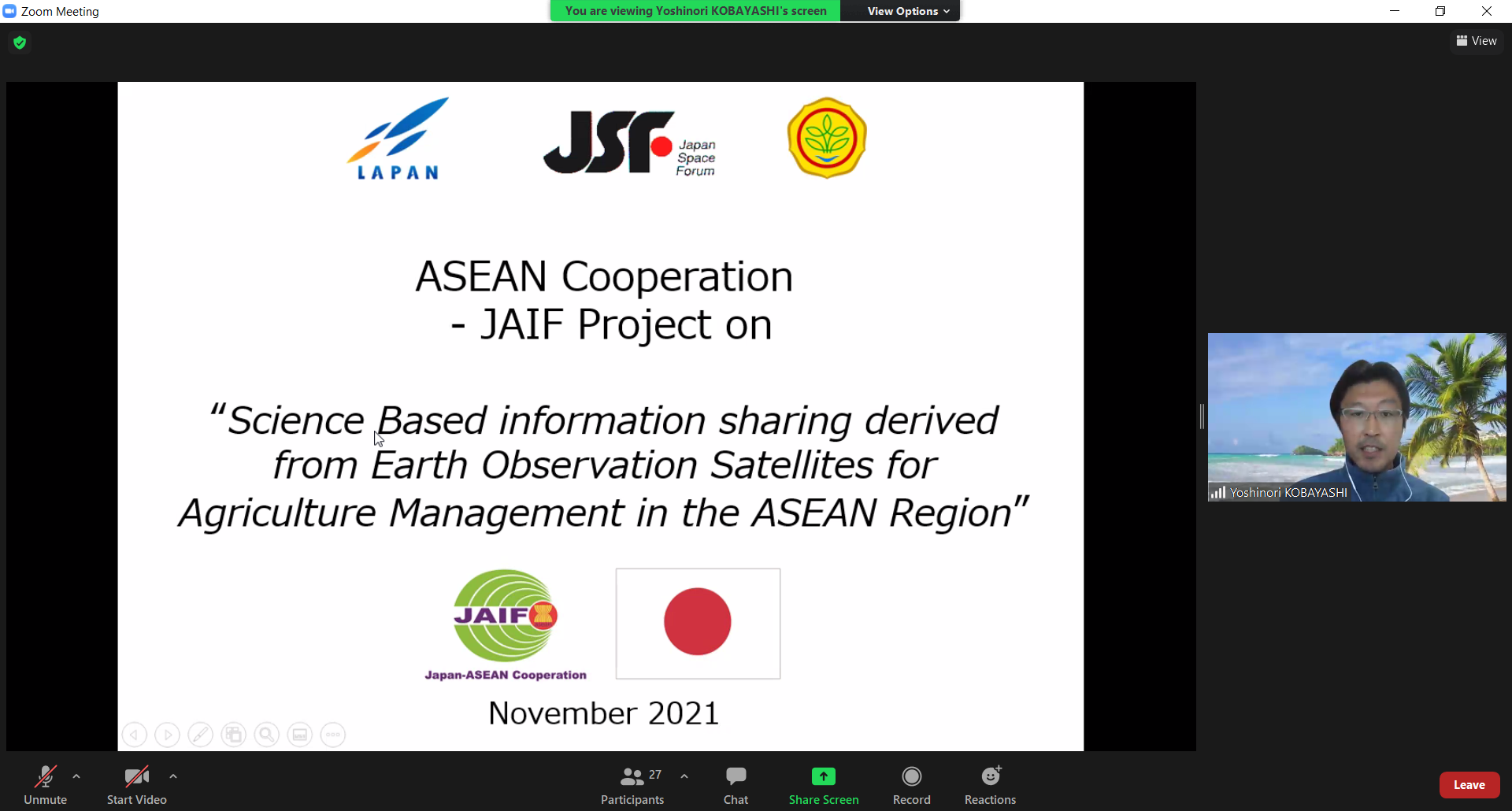
The Japan Space Forum (JSF) had conducted the 2nd Training Program under the ASEAN-Japan Project (JAIF Project): Science Based Information Sharing Derived from Earth Observation Satellites for Agriculture Management in the ASEAN Region on 24 November 2021 as an online training. The project is an initiative implementation under the purview of the Sub-Committee on Space Technology and Applications (SCOSA) of ASEAN Committee on Science, Technology and Innovation (COSTI) with the support from JAIF.
Prior to the online training on 24 November 2021, JSF also held the prior online self-study and report writing from 15 November to 19 November 2021 in collaboration with Sakura Science Exchange Program in practical operation.
There were total 8 trainees from 8 ASEAN member countries namely Cambodia, Indonesia, Lao PDR, Malaysia, Myanmar, Philippines, Thailand, and Vietnam along with 20 observers. Also, there were 9 participants from Sakura Science Project 2020 as the actual Japan-visit session of 2021 was canceled due to COVID-19 situation.
The main objectives of this training program are to 1) understand the background of the project and its connection to Group on Earth Observations Global Agricultural Monitoring Initiative (GEOGLAM) 2) learn the basic knowledge of satellite-based remote sensing for agromet; 3) learn the usage of Japan Aerospace Exploration Agency (JAXA) web system for agromet information (JASMIN) and 4) understand how to interpret satellite based agromet information to rice growing outlook.
During the training, there was a notable lecture from Dr. Ryo Michishita, RESTEC, regarding the Remote Sensing of Agriculture. Also, the useful feedbacks and comments on Crop Growing Assessment Report Writing from Mr. Shoji Kimura, AFSIS Technical Advisor, were given to the trainees. Moreover, an active discussion forum were opened for the participants to share their questions or opinions.
The training was successfully conducted as the participants were effectively imparted with the knowledge of a report writing and the satellite-based remote sensing for agromet system which can be applied to their work respectively.
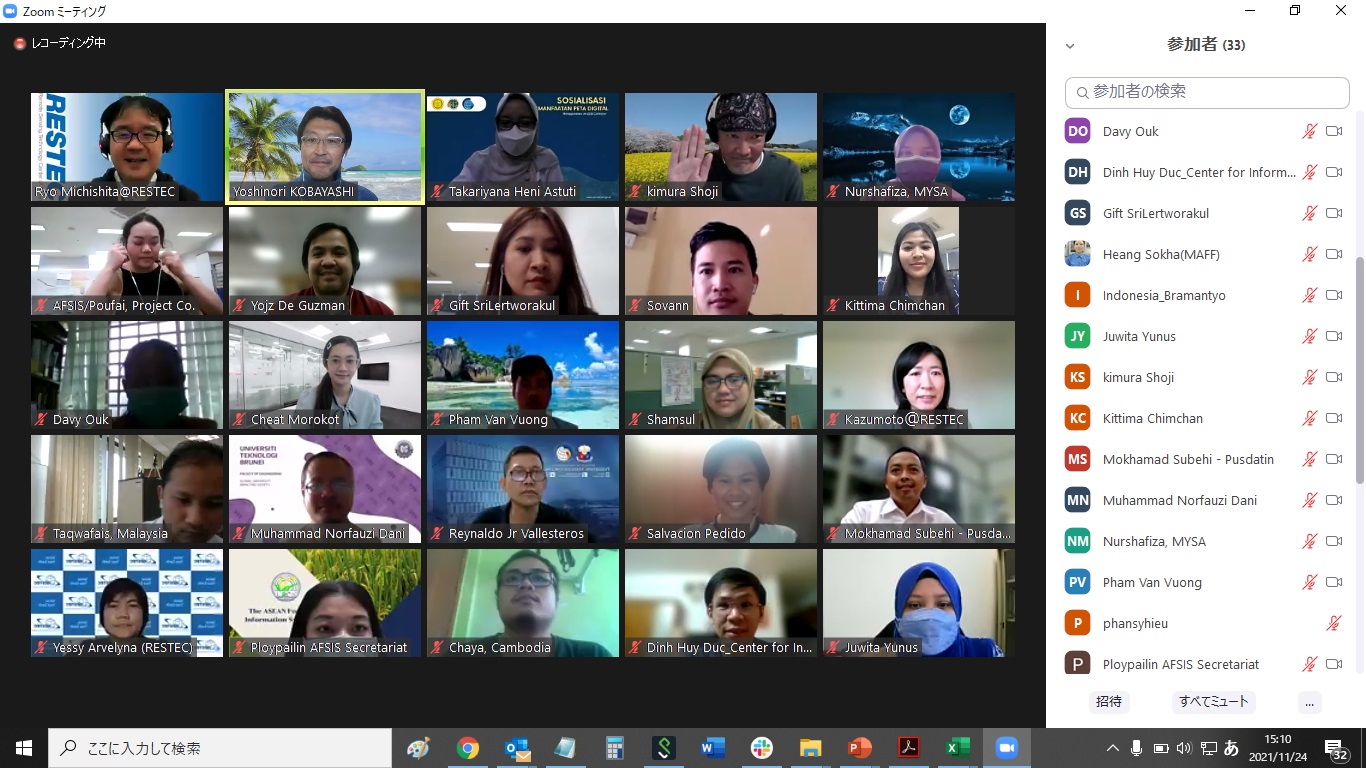
Photo from RESTEC

Photo from RESTEC
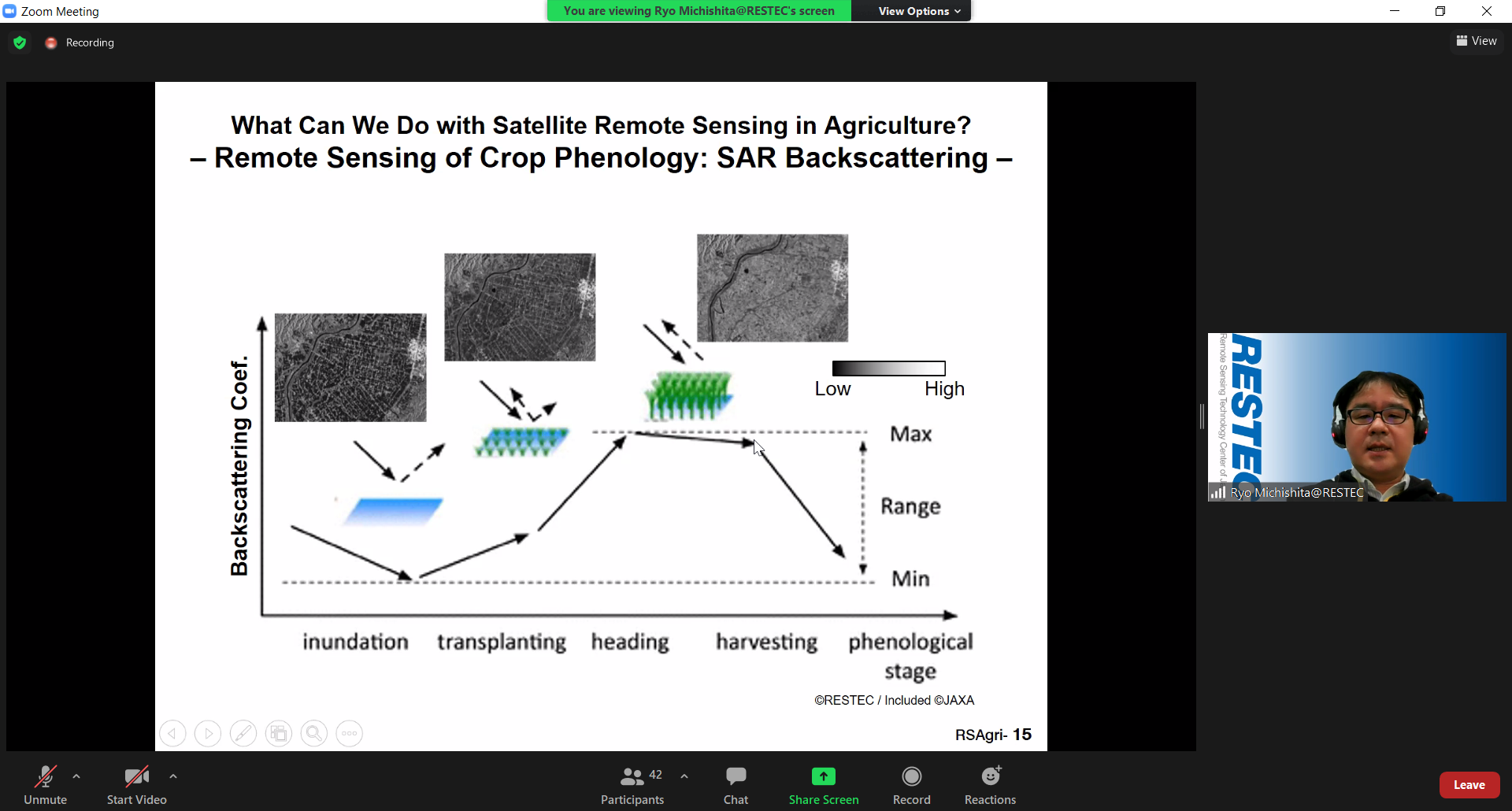
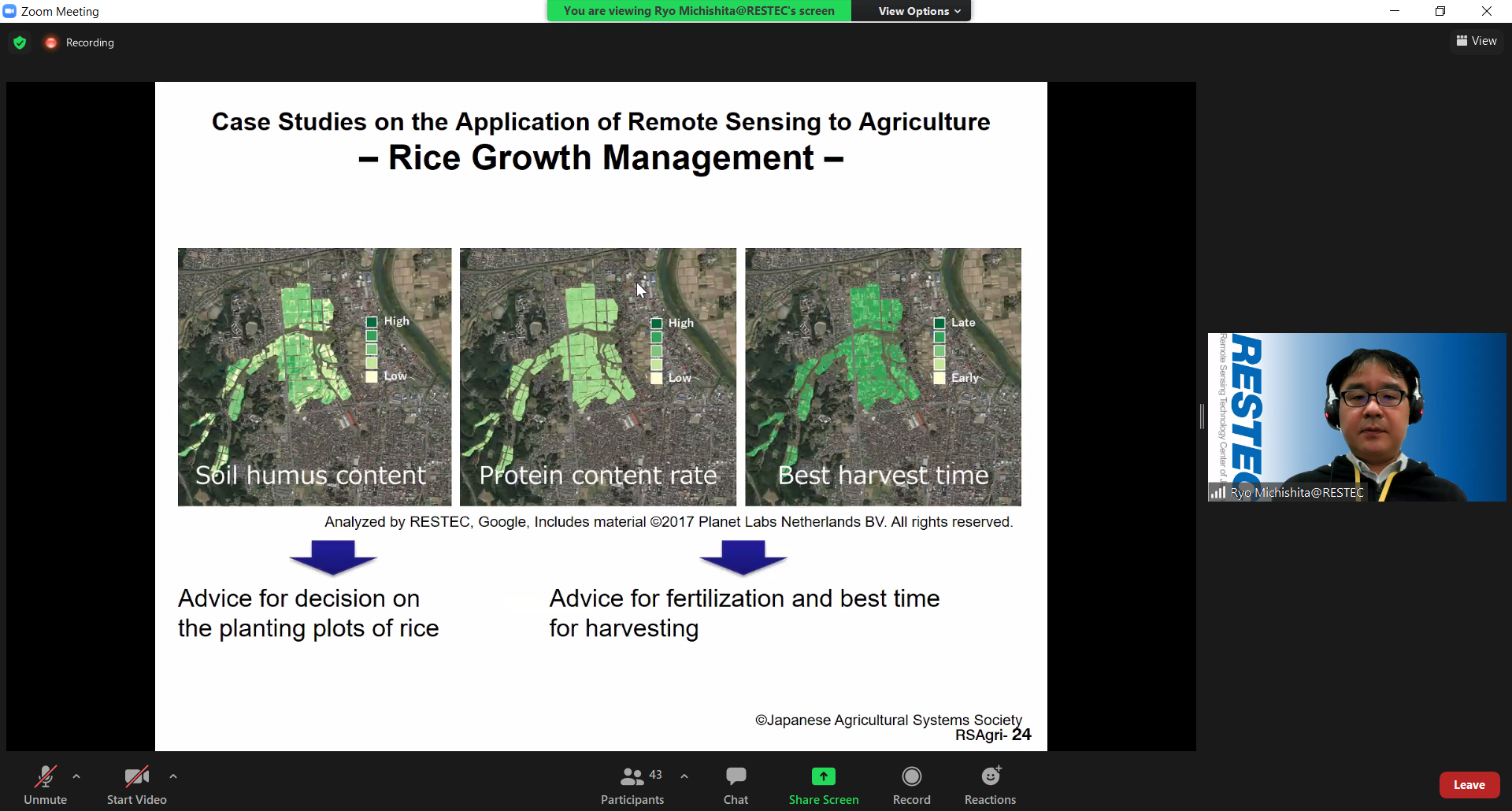
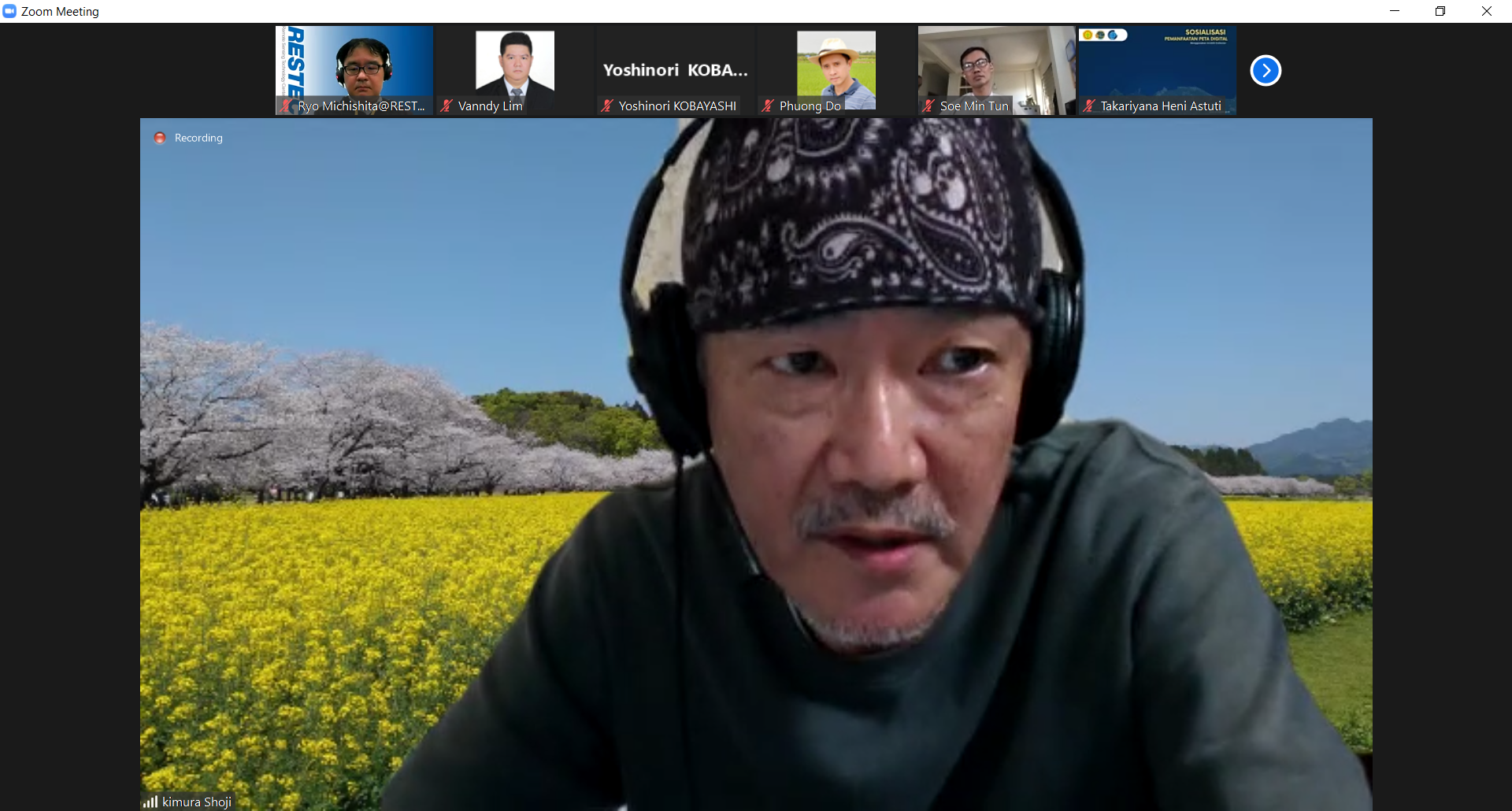
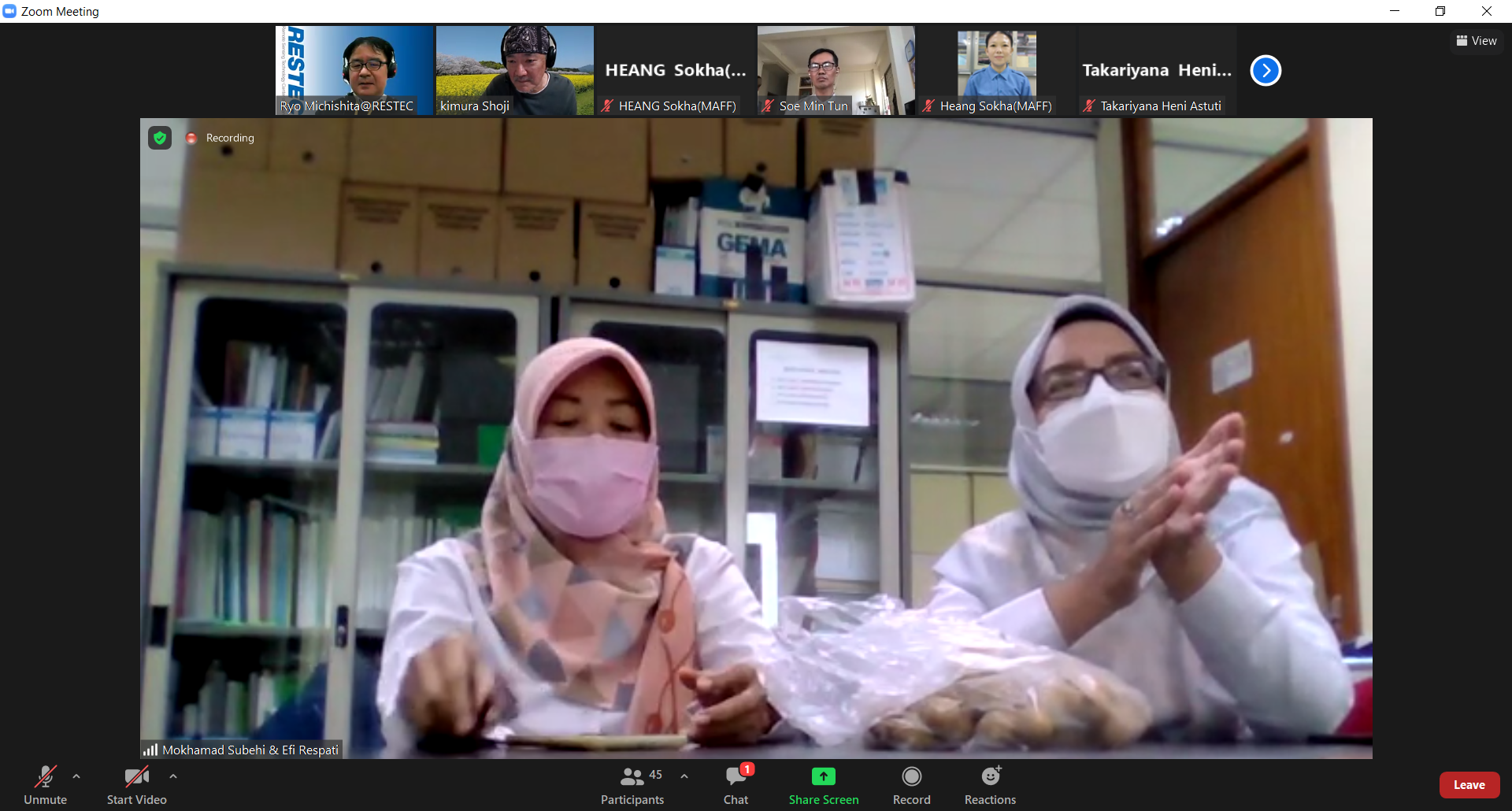
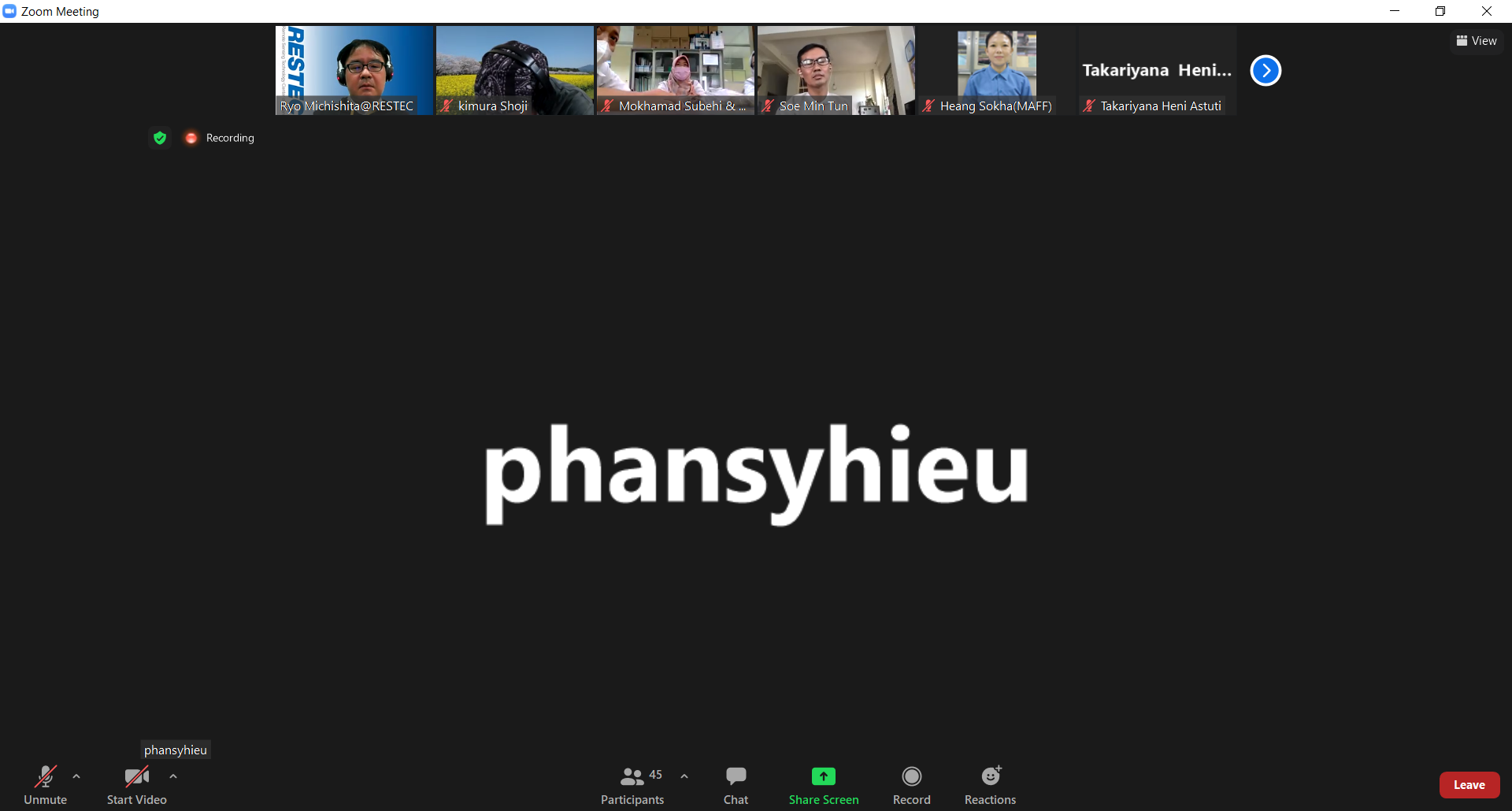
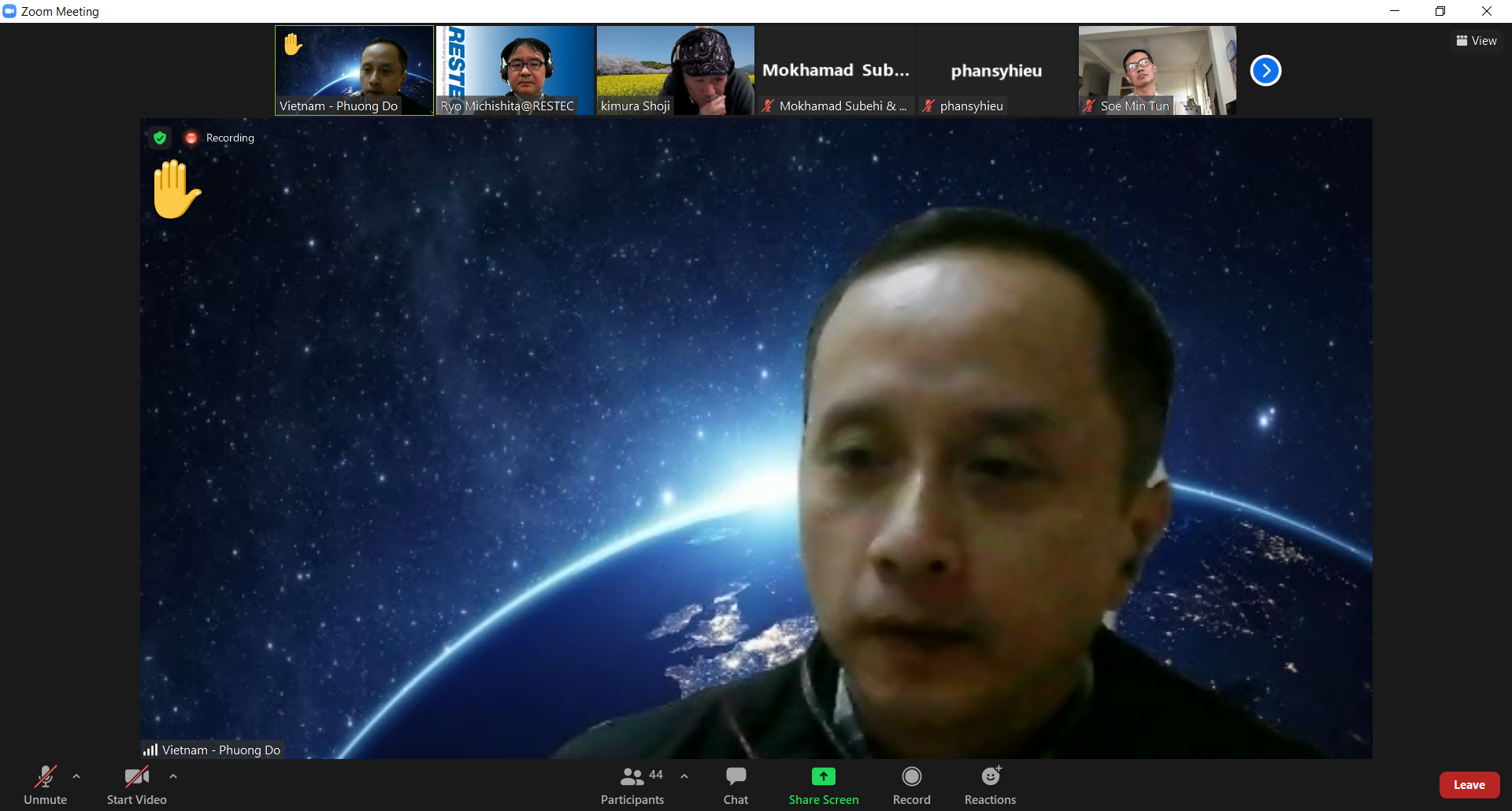
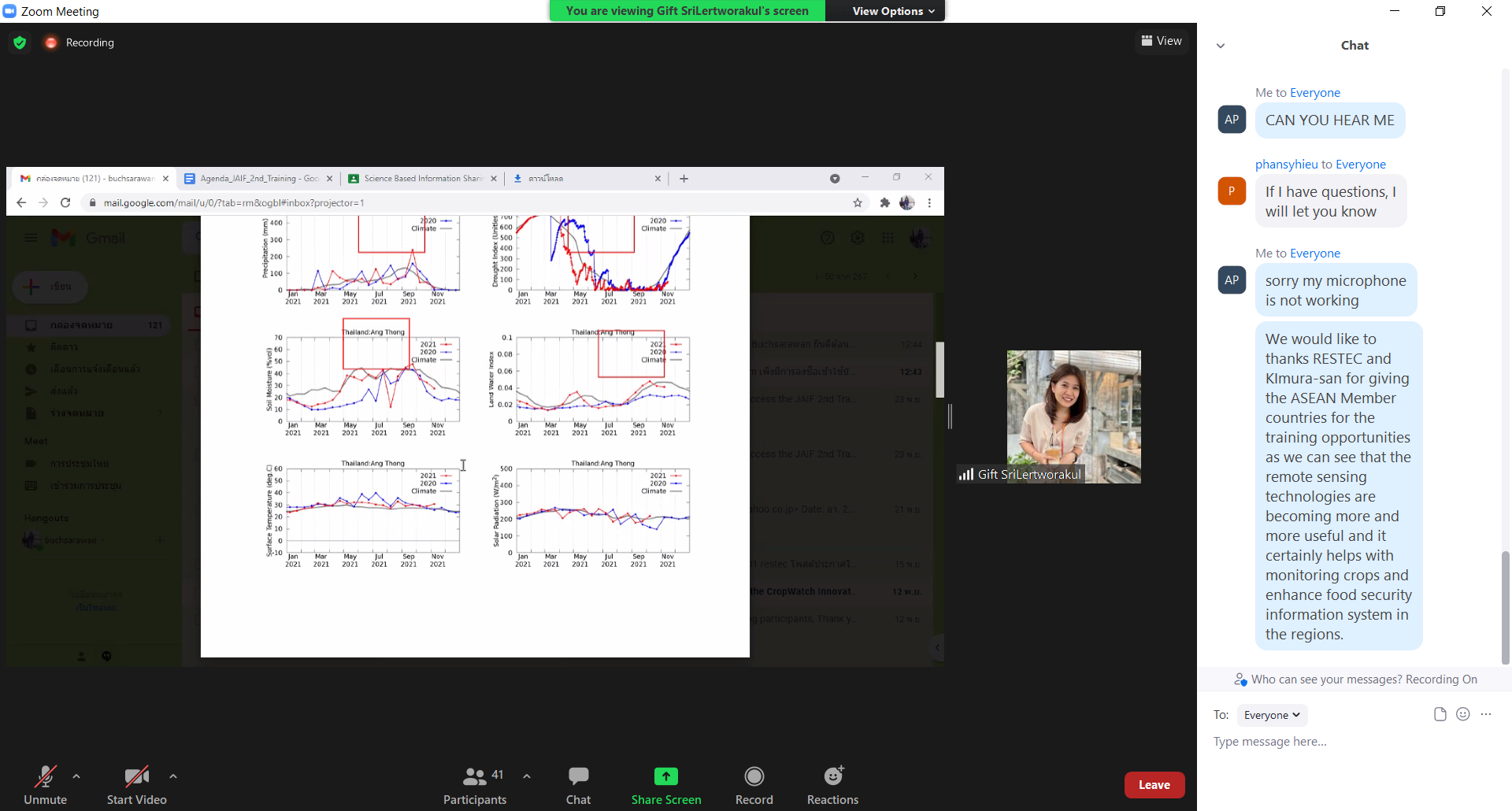
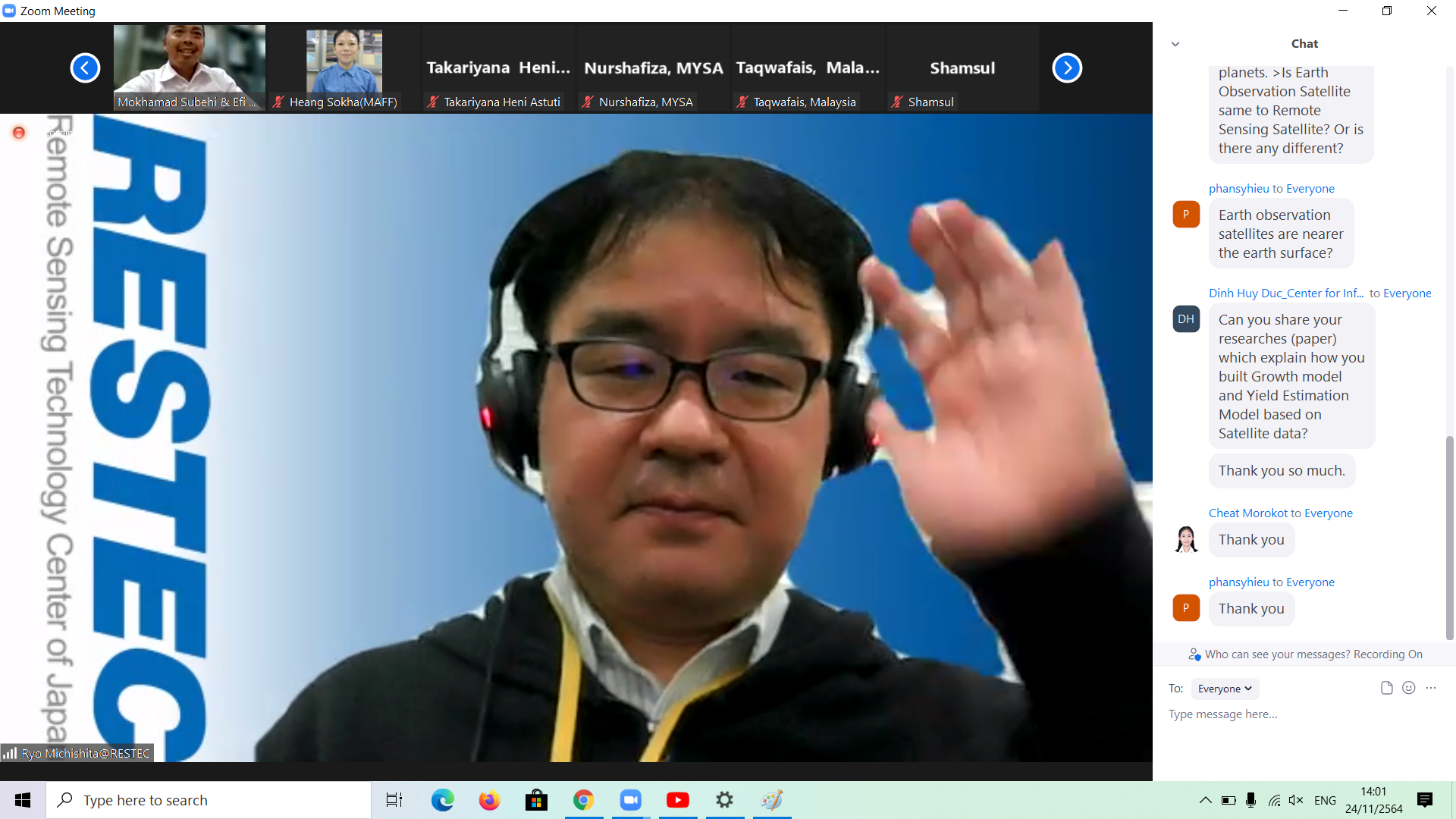
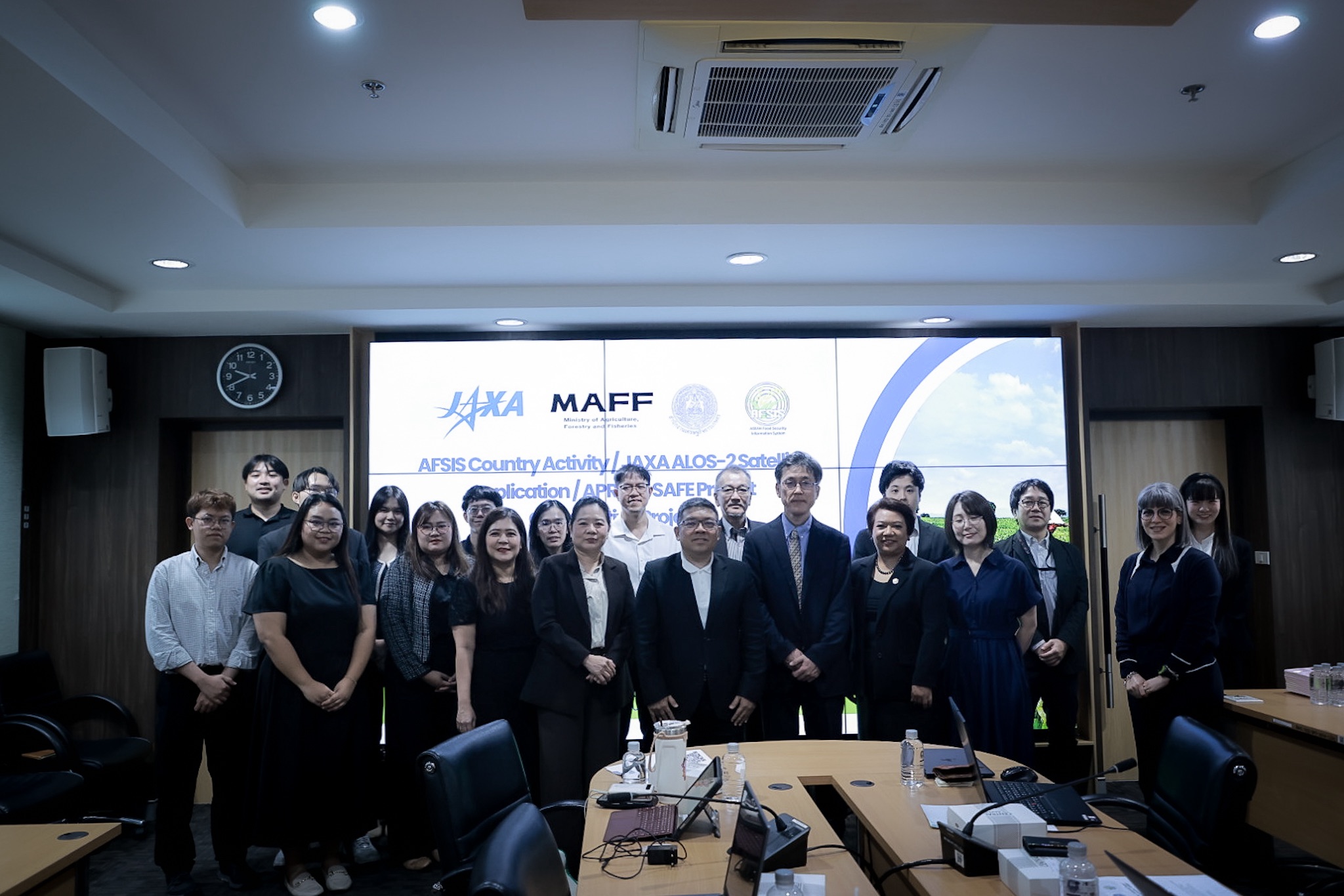
On 12-13 February 2026, the AFSIS Secretariat, in collaboration with the Japan Aerospace Exploration Agency (JAXA), the Remote Sensing Technology Center of Japan (RESTEC), Ministry of Agriculture, Forestry and Fisheries (MAFF) Japan and the Office of Agricultural Economics (OAE), Ministry of Agriculture Cooperatives (MOAC), conducted a workshop conducted a workshop The Promoting Rice Planted Area and Production Estimation Using INAHOR and Space-based Technologies in Thailand at the Meeting Room 2, Innovation Building, 3rd FL, Office of Agricultural Economics (OAE)
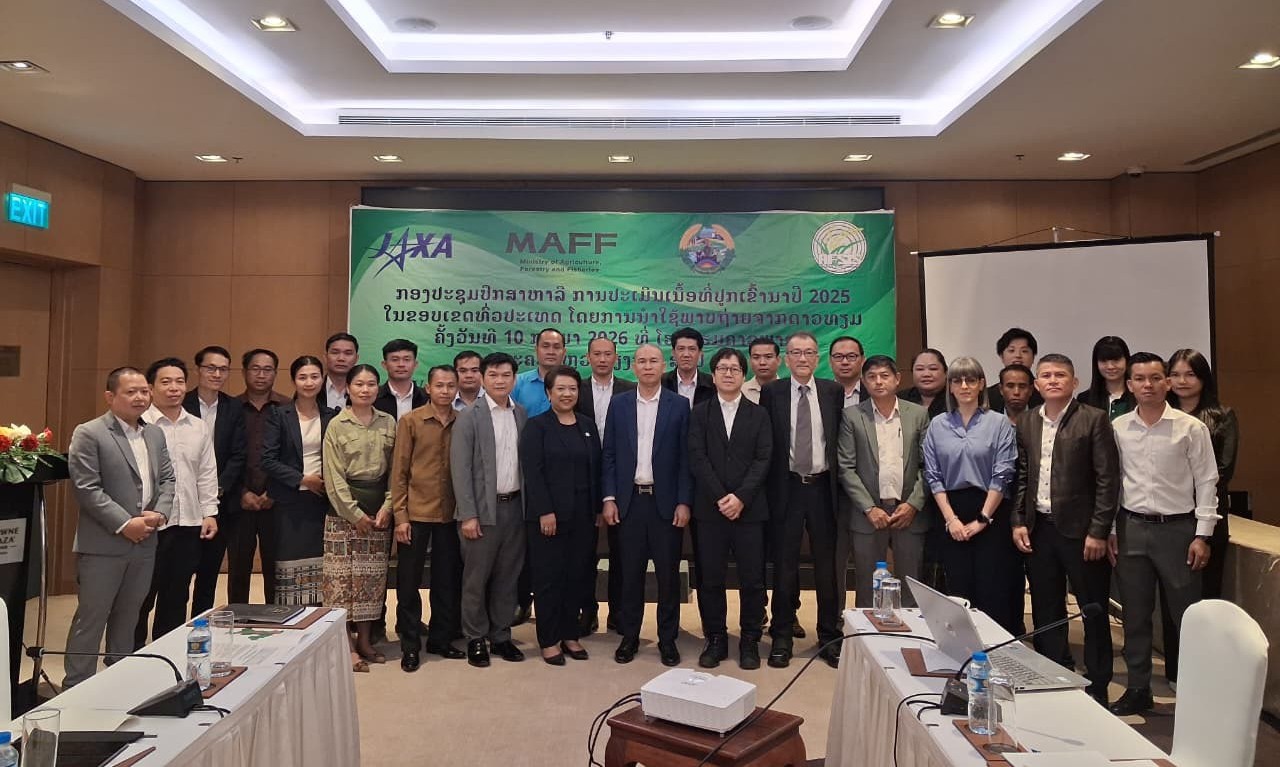
The In-Country Workshop on Promoting Rice Planted Area and Production Estimation Using Space-based Technologies in Lao PDR was jointly organized by AFSIS Secretariat, JAXA, MAFF Japan, and MAE Lao PDR under the AFSIS-GIS and SAFE projects. The event was held in Vientiane with hands-on training on 9 February 2026 and a workshop on 10 February 2026.
.jpg)
On 13–15 January 2026, the Office of Agricultural Economics (OAE), Thailand, in collaboration with the Ministry of Agriculture, Forestry and Fisheries (MAFF), Japan, and the AFSIS Secretariat, conducted the 1st Meeting of Japan–Thailand Expert Dialogue on Agricultural Statistics. The meeting was held at the Office of Agricultural Economics and field survey activities in Chonburi Province.

On 3–4 December 2025, the ASEAN Food Security Information System (AFSIS) Secretariat participated in the ASEAN Plus Three Emergency Rice Reserve (APTERR) Table Top Exercise (TTX) held in Bandar Seri Begawan, Brunei Darussalam.